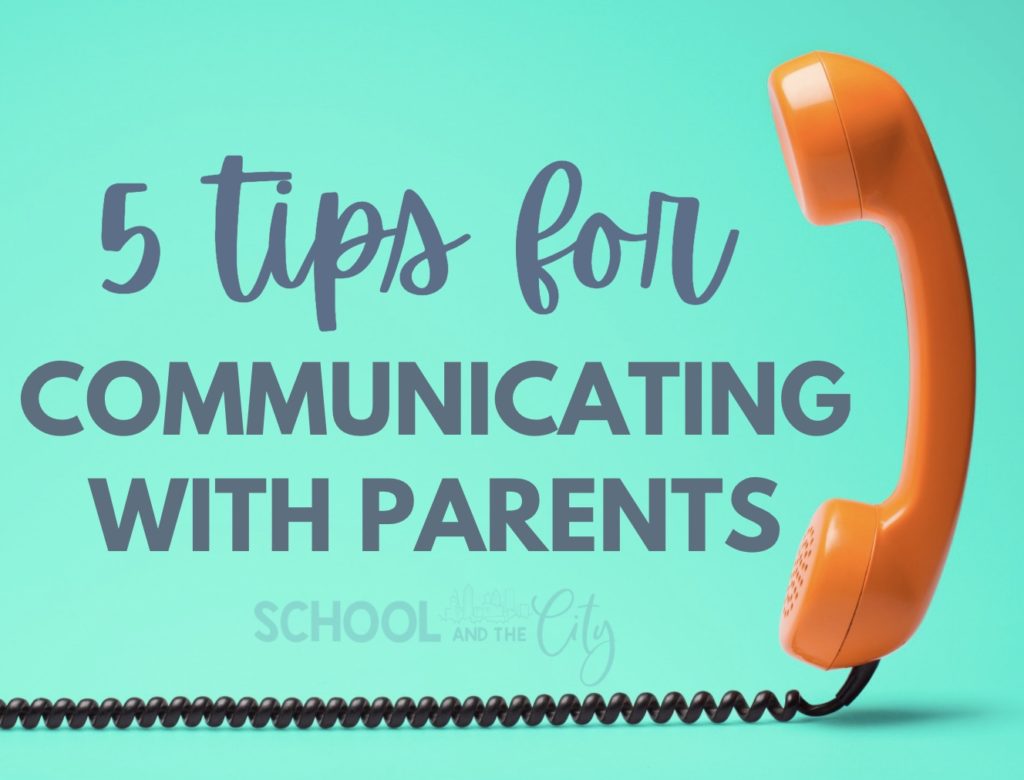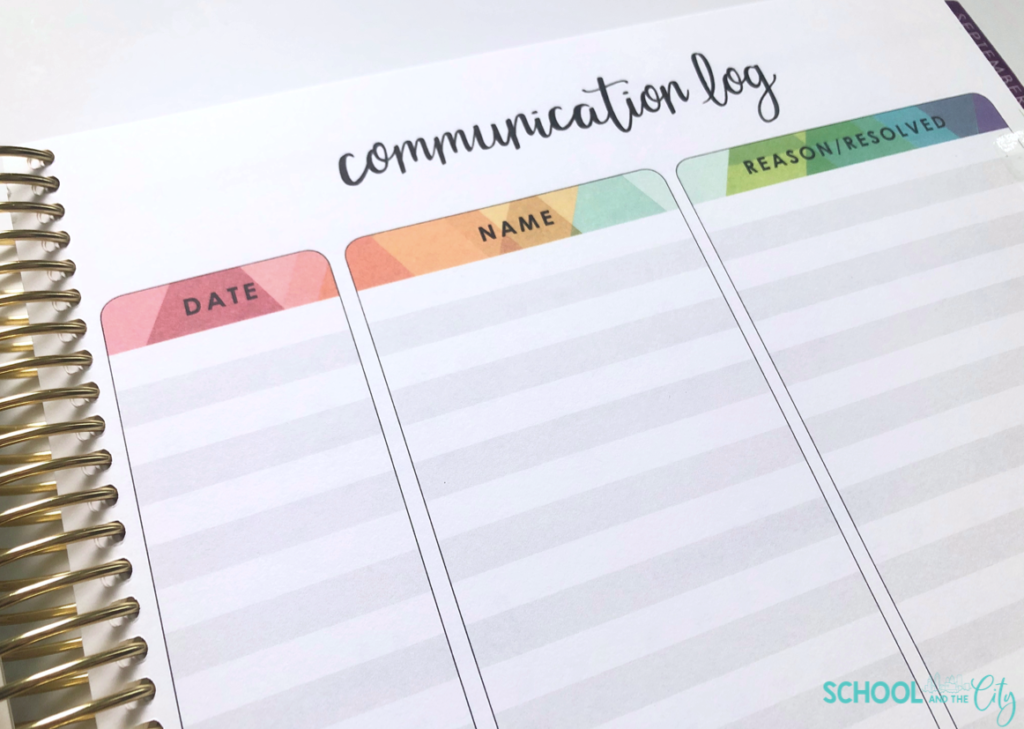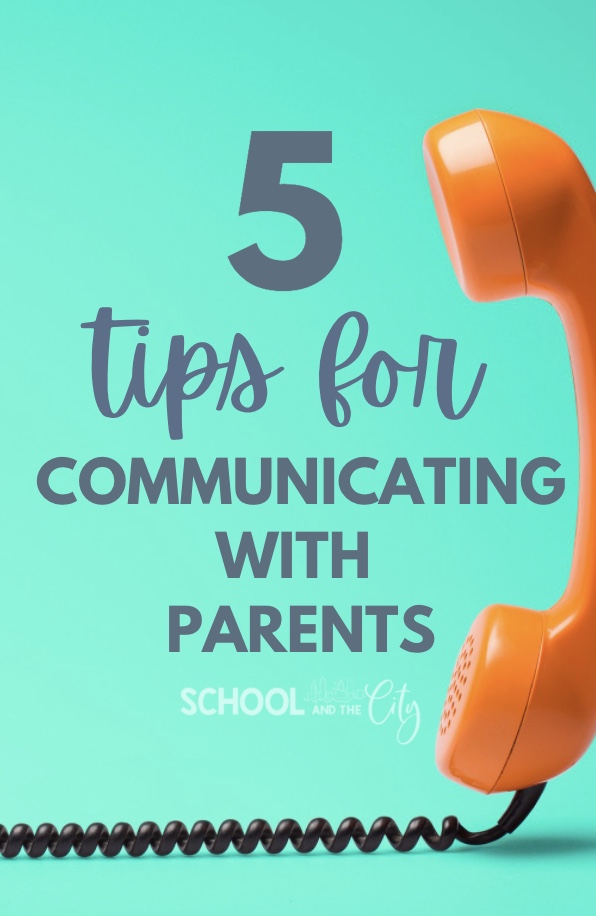
This topic is making me sweat just thinking about it:
Parent communication!
*shiver*
I’m entering my 9th year of teaching, but communicating with parents still gives me anxiety. I’ve dealt with some amazing parents along with the worst of the worst. Here are 5 things to keep in mind when communicating with your students’ guardians.
Make Positive Contact
This is my favorite (and possibly the most effective) of all the parent communication tips.
Make a point to communicate with individual parents as soon as the school year starts. Find an easy way to start building relationships with parents, which will set you up for success in the future should you have to have tough conversations. (And you will!)
I personally use these notepads, which make it super easy and quick for me to compliment a student. There are lots of free printable options on TPT, too.
One of my principals made it a requirement for all teachers to make positive contact with parents during the first week of school. As much as I dreaded it, it really does help in the long run. A quick positive note, email, or phone call makes a huge impact.
Keep a Log
Make note of every time you contact a parent individually. You may need this information in the future, particularly if an issue arises. It’s worth it to take a moment to log every contact made throughout the year. I don’t write down positive notes home or every email, since I can search my inbox. I’m talking phone calls and in-person meetings.
I use the simple parent communication log that is included in my teacher planner. I know some teachers use a Google Form like this one to keep track. Do whatever works best for you!

Compliment Sandwich
It’s guaranteed that you will have to contact parents regarding behavior incidents. I try to keep this communication as professional as possible, and I try to create a compliment sandwich so that an email’s content is not entirely negative information about a child.
For example, I might send an email with a body like this:
(compliment) As you know, Mr. Big has continued to make great progress in math and typically sets a good example for his peers by being responsible. (the tough stuff) Unfortunately, he made some poor decisions in our math class today. Instead of using materials correctly to play a math game, Mr. Big flung rubberbands at his partner and across the room. When I pulled him aside to have a discussion, he seemed to understand why his actions were disrespectful and potentially harmful. (compliment) Mr. Big was very polite and immediately remorseful. He went on to demonstrate expected behavior for the rest of the day. Thank you in advance for addressing this at home.
When it comes to parent communication tips, the compliment sandwich isn’t always appreciated. Use your best judgment!
The 24 Hour Rule
You do not need to be attached to your email 24/7. I repeat: DO NOT. You do not have to be accessible to parents at every moment of every day. This is important to keep in mind especially when you get a nasty email.
Those emails hurt. I try not to take it personally, but teaching is personal. It just is. I’m stubborn, and I’m snappy if I feel wronged. I’ve learned that in order to maintain the utmost professionalism (and to not regret my choice of words later on), I wait to respond instead of replying immediately. Sometimes I wait a few hours to cool off and think on my response. Sometimes I wait until the next day. Respond within 24 hours, when you are ready. A thoughtful, emotion-free reply is better than a fast, sassy reply that you might regret.
I’ll also add that depending on the situation, it’s okay to get admin involved if the situation continues to escalate and you need help. Don’t go to admin for every single thing – you’re independent and capable. But I’ve learned that some parents won’t rest until they’ve heard from a higher power. So be it.
Be Proactive
Find a way that works for you to keep parents in the loop. Be proactive by communicating in various ways so parents feel involved, included, and informed. This will help keep parent emails to a minimum if they feel like they know what’s going on in your classroom.
When I taught a homeroom class, I sent a weekly email on Fridays to tell parents what to expect for the next week. I copied and pasted the email text into the blog section of my class website, where I kept other classroom information, important dates, etc. I also have a Twitter – because that’s big in my school district – where I occasionally share information and pictures of the classroom activities.
I personally love Class Dojo (for behavior) and Seesaw (for academics). Both are apps that communicate with parents for you. Get the parents connected at the beginning of the year, and you’ll have effortless parent communication covered all year long. Parents will feel in-the-know without you doing any extra work!
I’m wishing you allllll the kindest parents in the world! I’m talking the ones that know your Starbucks order and send it in as a surprise. (They’re out there, I promise!)
Parent Communication Tips: Recap & To-Dos
Set up a classroom Twitter account if that’s a thing in your area.
Check out Seesaw to see if you’ll love it as much as I do.
Decide how you’ll log communication.
Prep your positive notes for the first week of school.
